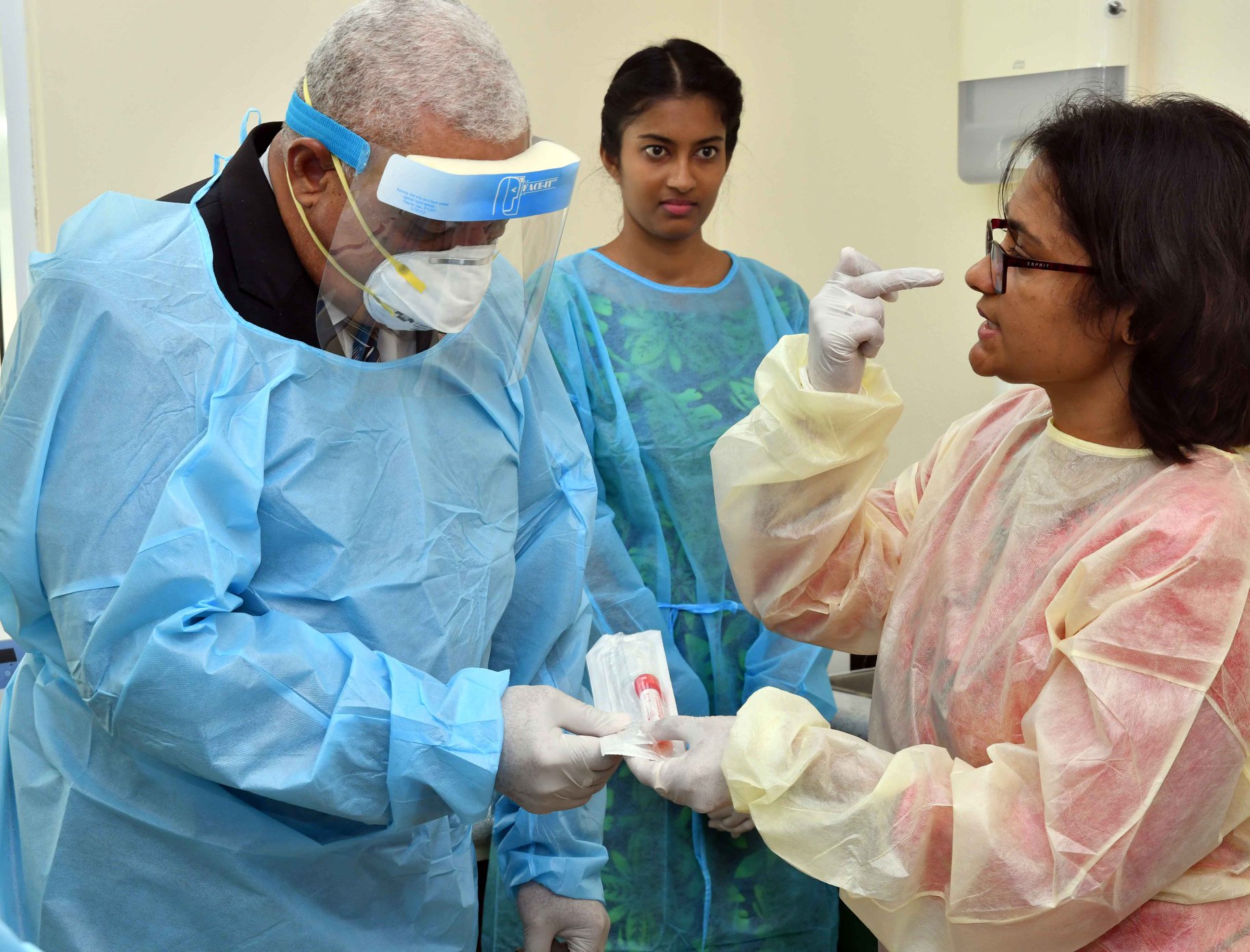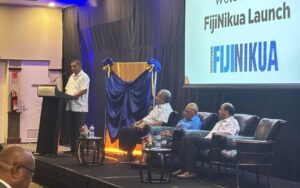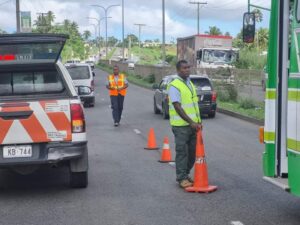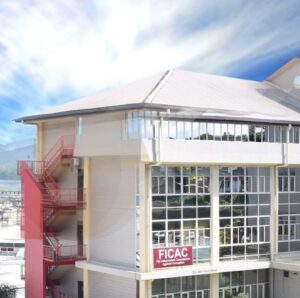Bula vinaka.
Thank you to Dr Aalisha Sahukhan, the Head of Health Protection at the Ministry of Health and Medical Services, Dr Iferemi Waiqanabete, the Minister for Health and Medical Services, Dr Jemesa Tudravu, Fiji’s Chief Medical Adviser, and Mr Gordon Penfold, the Executive General Manager of Shared Business Services at Fiji Airways, for joining me today.
In the early hours of this morning, Thursday, the 19th of March, Fiji confirmed its first case of the novel coronavirus, known as COVID-19. This is an event we have expected and spent months preparing for – and it is an event we are dealing with decisively.
The patient in question was identified, isolated and tested Tuesday evening at the Lautoka Hospital. The patient remains under close medical supervision and he is in stable condition. The case was transmitted while he was travelling abroad; there remain zero confirmed cases of local transmission in Fiji.
Upon confirmation of COVID-19, the Ministry’s highly-trained contact team –– which effectively contained last year’s measles outbreak with the same contact-tracing methods –– was immediately put into action to identify all those with whom the patient has been in close contact. Those points of contact are currently being sought out and quarantined. The capacity of our contact team has been further strengthened by the Republic of Fiji Military Forces and the Fiji Police Force, heightening our capacity to trace and quarantine all those potentially exposed to the virus.
My fellow Fijians, while this is our first confirmed case in the country since its origins in China in November of last year, COVID-19 is now a widespread, global pandemic. Nearly every country has already reported cases of the virus, including multiple Pacific Island nations. Our constant monitoring of the global spread of the pandemic has given us a clear idea of what is necessary now to prevent a large-scale outbreak in Fiji.
From midnight tonight, our border restrictions on mainland China, Italy, Iran, Spain and South Korea will be extended to foreign nationals who have been present in the United States of America and all of Europe, including the United Kingdom, within 14 days of their intended travel to Fiji. Also from midnight, anyone entering Fiji from any overseas destination will be required to self-quarantine for 14 days, meaning they must stay in one place and avoid contact with others or going out in public as much as possible. Doctor Aalisha will explain later exactly what self-quarantine measures entail. Taken together, these new travel restrictions are the strongest and widest reaching in Fijian history.
The first case is identified in Lautoka, and that is where the most stringent local travel restrictions will take effect. Starting tonight at midnight, all schools and non-essential businesses within the Greater Lautoka Area will be closed until further notice. We’re defining the Greater Lautoka Area as the area spanning from King’s Road at Nacilau Junction past Matawalu Village, to the feeder road at Vakabuli Junction, to the Queen’s Road at Natalau Junction. Banks, supermarkets and pharmacies –– and other essential businesses –– in the Greater Lautoka Area will remain open. Essential businesses include air and rescue services, air traffic control services, civil aviation, telecommunication services, food and sanitary manufacturing plants, electricity services, emergency services, fire services, health and hospital services, lighthouse services, meteorological services, mine pumping, ventilation and winding, sanitary services, supply and distribution of fuel and gas, power, telecommunications, garbage collection, transport services and water and sewage services.
Fijians who work –– but do not live –– in this area should report to the nearest office outside of the monitored area, regardless of whether their industry falls under the essential businesses list. If there is no branch of your company outside of the Greater Lautoka area, please contact your employer and government will, in the next few days, announce how your absence from work will be treated during this situation. We advise all employers to accommodate the needs of your employees and not make any employees redundant.
Basically, if you are living in the Greater Lautoka Area, you will now stay in the Greater Lautoka Area. If you do not live in Greater Lautoka Area, you cannot travel there, even if you work there.
By continuing these essential services, we will ensure the supply of food will continue to be available. In order to maintain food security, the Agriculture Marketing Authority will be buying fruits, vegetables and root crops at the border of the Greater Lautoka Area from the farmers and middle-men to be sold to the vendors for sale at local markets in the Greater Lautoka Area. The Minister for Agriculture will provide the specifics of this programme later today.
Outside of these containment measures in the Greater Lautoka Area, our nationwide efforts to contain COVID-19 are also being drastically expanded, effective immediately. Gatherings of 20 or more people are now banned. Gatherings are defined as any assembly of individuals in a single location, including meetings, religious gatherings, such as church, mosque and temple services, and sports events.
At this stage, workplaces, businesses and inter-island shipping services outside of Lautoka may remain open, buses and Fiji Link services can continue and schools – outside of Lautoka – will remain open. However, all Fijians should avoid all non-essential travel. Nightclubs, gyms, cinemas, swimming pools, fitness centres and even recreational contact sporting engagements –– which, by their nature, make personal space nearly impossible –– should also be closed and ceased everywhere in Fiji, effective immediately. For the time being, the judiciary will continue to function, but there will be no movement of people in remand centres into or out of the Greater Lautoka Area.
We will also be establishing fever clinics in each Division, similar to what other countries have done to contain the virus at the local level. These clinics will be designed to keep people with fevers away from vulnerable people who visit Health Centres and into separate, dedicated spaces specially designed to effectively identify possible COVID-19 cases.
This is an aggressive, proportionate and – most importantly – scalable response. All of these measures will be reviewed in 14 days’ time. Before then, measures may escalate if necessary as we monitor the situation, particularly the outcomes of our contact tracing.
My fellow Fijians: Wherever you’re watching this address, the number one thing you can do today to serve our nationwide response is to regularly wash your hands with soap and water. All it takes is 20 seconds of hand washing to potentially save a life.
From today – and this is also absolutely vital – Fijians must join the rest of the world in practicing what is known as “social distancing”. Basically, it means limiting contact –– especially in groups –– as much as possible to prevent person-to-person transmission of the disease.
We need to keep a safe distance of two metres from one another as much as possible. We should also all refrain from visiting elderly homes, prisons or patients in hospitals. We must sneeze or cough into our elbow or a tissue which should be immediately discarded. Do not share takis or bilos. Do not shake hands or hug one another, as difficult as that may be.
We know this virus strikes hardest at those most vulnerable. We need to learn from the hard lessons of other nations who failed to practice social distancing until it was too late. So, while young people often do not show symptoms or suffer serious cases, they can infect el
derly members of society, including their grandparents, and those with underlying health conditions, such as NCDs. That is why I’m calling on all Fijians, but particularly on young people, to exercise the greatest levels of caution; do your duty in protecting the most vulnerable in our society by adhering to the rigours of social distancing. Together, let’s use our God-given wisdom, act responsibly, and get Fiji out in front of this.
I want to assure every Fijian family that Fiji is food secure, and can take comfort knowing that an abundance of vital cleaning and hygiene products are locally produced. There is no sense in running to the market and buying up massive amounts of goods. We will not be cutting ourselves off from importing food and other essential items; there will be a steady supply of the goods Fijian families count on.
I want to make another important point. Yes, we’ve introduced historic levels of travel restrictions. Yes, we’ll be practicing social distancing. But that doesn’t mean we’re distancing ourselves from the genuine care and camaraderie that bind us together as a society. We’re heading into a difficult period, surely. But in this moment of challenge, our national unity cannot run in short supply. No one should act in fear or with panic; we must all act out of the love we hold for our fellow Fijians. We are in this together. We will endure this together. And we will overcome this together as well.
As always, all Fijians should rely exclusively on the Ministry of Health and Medical Services, along with the World Health Organisation, as trusted sources of information.
Finally, Fiji’s health relies on your help in our containment efforts. If you are feeling unwell, or know someone who is feeling unwell, immediately contact the Health Ministry on one of these numbers:
In the Central Division call 2219905;
In the Eastern Division call 2219906;
In the Western Division call 2219907; and
In the Northern Division call 2219908.
We will provide regular updates to the public on our response as the situation evolves. In the meantime, stay safe and do your part.
Vinaka vakalevu and God Bless Fiji.









